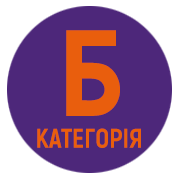INVOLVING PARENTS IN THE SOCIAL ADAPTATION OF CHILDREN WITH DOWN SYNDROME
DOI:
https://doi.org/10.32782/2522-1795.2022.12.9Keywords:
Down syndrome, parents, children, social adaptationAbstract
Families raising children with Down syndrome experience difficulties in social inclusion and need comprehensive social support. In the article, we highlighted the stages of parents' reactions to the news that the child has a developmental disorder. Based on the analysis of domestic and foreign literature, the principles on which work with families should be built were determined. We formed three stages of parents' involvement in social adaptation. The first is initial, our main goal at this stage is the formation of parents' adequate ideas about the violation of the child's psychophysical development and the possibilities of his education and socialization. The second stage is organizational, a feature of this stage is the joint planning of various family events in accordance with the child's individual program and the development tasks indicated in it for a certain period. The final stage is communicative, this stage is crucial for the normalization of the psychological climate in the family. Today's scientific views are based on the conviction that parents are the first and main teachers of a child with Down syndrome, therefore social support for such families is a solution to a whole set of problems related to helping the child: treatment, education, social adaptation and integration into society. It is worth noting that for parents, working with children with Down syndrome is very difficult, since working with the child must be constant and intensive. It is important for the family to feel attention and support from specialists, interest in the child's development, readiness to help them, not to leave the parents alone with problems of interaction with the child.
References
Боровик С.П. Синдром Дауна: вперше на державному рівні розглянуто питання сучасної діагностики, медичного супроводу та реабілітації «сонячних» дітей в Україні. Український медичний часопис. 2015. 2. 26-27.
Григус І.М., Нагорна О.Б. Основи фізичної терапії навчальний посібник. Одеса. Олді+, 2022. 150.
Ковтун Р.А. Програма розвитку комунікативних здібностей у дітей з синдромом Дауна. Харків: ХНПУ, 2010. 36. 8-10
Михайлова Н.Є. Просвітницька робота з батьками щодо фізичної реабілітації дітей з вродженою клишоногістю. Теорія та методика фізичного виховання. Харків, 2012. 2 (88). 41-43.
Нагорна О.Б. Особливості корекційно-виховної роботи з дітьми з особливими освітніми потребами: навчально-методичний посібник. Рівне, 2012. 99.
Нестерчук Н.Є., Осіпчук І.О., Подолянчук І.С. Фізична реабілітація дітей з синдромом дауна. Науковий часопис Національного педагогічного університету імені М. П. Драгоманова. Серія 15. Науково-педагогічні проблеми фізичної культури, фізична культура і спорт. Київ. НПУ імені М. П. Драгоманова, 2019. 3 (111). 105-109
Савицький А.М. Особливості раннього розвитку дітей з синдромом Дауна. Збірник наукових праць Кам’янець-Подільського національного університету імені Івана Огієнка, 2012. 20 (2). 178-185.
Савицький А.М. Особливості просторового орієнтування дітей молодшого шкільного віку з синдромом Дауна. Актуальні питання корекційної освіти, 2014. 4. 303-313
Соколова Г.Б. Історичний шлях розвитку проблеми сім’ї, яка виховує дитину з відхиленнями в розвитку. Вісник Одеського національного університету, 2012. 9 (21). 193-200
Соколова Г.Б. Психологічний супровід школярів із синдромом Дауна: Монографія. Чернівці. Букрек, 2018. 344
Nesterchuk Nataliia, Sydoruk Inna, Tryfonyuk Liliya, Zdanyuk Vadym, Prusik Krzysztof. Modern approaches to ergotherapy of children with the Down syndrome. Journal of Physical Education and Sport. Published online: October 30, 2021. 2981-2986
Downloads
Published
How to Cite
Issue
Section
License

This work is licensed under a Creative Commons Attribution-NonCommercial-NoDerivatives 4.0 International License.











